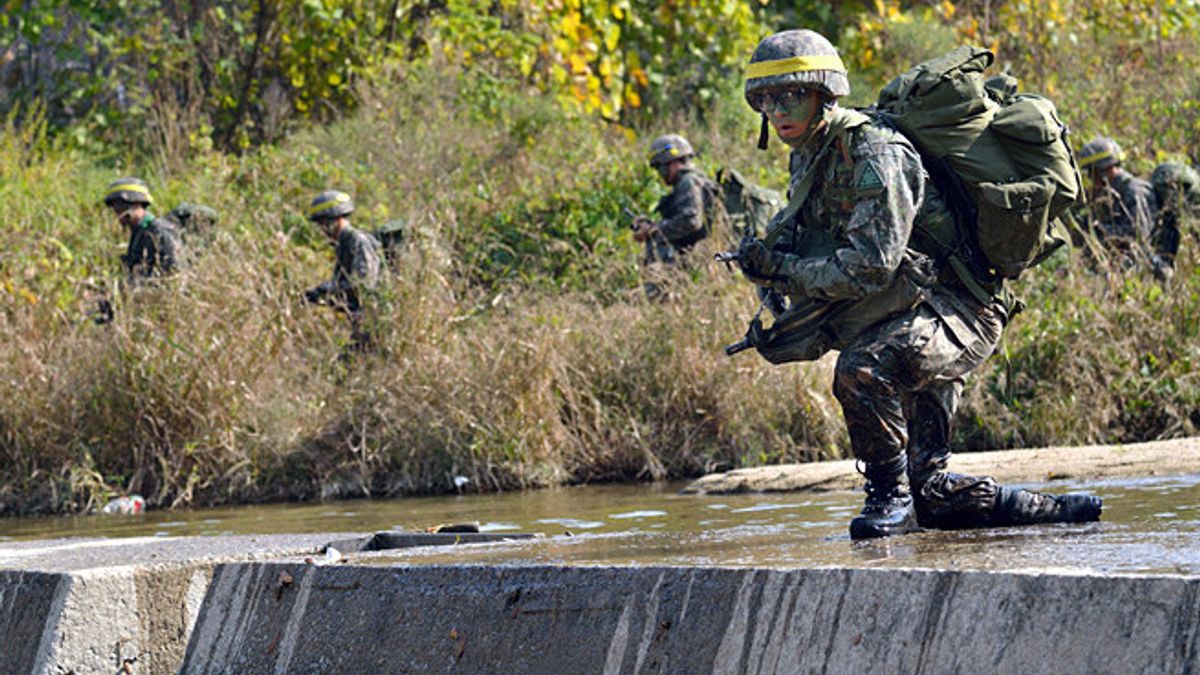JAKARTA - Byun Hui-Su, South Korea's first transgender soldier was found dead at his home in Cheongju City, Seoul, Wednesday, February 3 local time.
Byun, who served as a staff sergeant in the Army, was fired last year for undergoing sex-change surgery. His death sparked calls from advocacy groups and activists for better protection and recognition of transgender people.
"Byun's death resonates more and more in the South Korean public, as the military and society refuse to acknowledge the change", Rainbow Action Against Sexual-Minority Discrimination of Korea, an umbrella association of 40 sexual minority groups, said in a statement.
"Byun's courage to move forward has inspired and empowered others", continued the group.
The South Korean military said it was not in a position to comment on Byun's death, citing his status as a civilian. However, this Thursday the South Korean military offered official condolences and called Byun's death unfortunate.
"However, the military has not yet discussed in detail its policies regarding the transgender issue", said the official.
Byun announced to the public that the South Korean military fired him last year after undergoing gender reassignment surgery in Thailand. He also filed a lawsuit against senior officials.
"I want to show everyone that I can be one of the great soldiers protecting this country", Byun said at the time, crying as he explained his decision to undergo surgery.
The case sparked debate in the South Korean LBGT community as to how transgender members of the military are treated in a country that requires all able-bodied men to serve for about two years.
According to Koreatimes, the South Korean Army made the dismissal decision in January last year, after judging Byun's loss of male genitalia as a Level 3 physical disability under the Military Act.
In July, the Army rejected Byun's petition to be reinstated. He filed an administrative suit against the Army's decision the following month, arguing it was unconstitutional.
In December, the Korean National Human Rights Commission (NHRCK) said the Army's decision not to allow Byun, then a staff sergeant, to continue serving in the military as a female soldier had no legal basis.
The NHRCK's opinion comes after the Korean Military Human Rights Center, a civilian group, filed a petition accusing Byun's forced military discharge as discriminating against transgender people.
Byun's case attracted widespread attention because he was the first active South Korean soldier to undergo sex-change surgery while on duty.
The English, Chinese, Japanese, Arabic, and French versions are automatically generated by the AI. So there may still be inaccuracies in translating, please always see Indonesian as our main language. (system supported by DigitalSiber.id)








